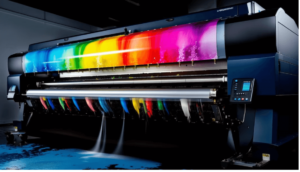From Script to Soundtrack: Essential Steps in Film Music Composition

Film music composition is a complex, multifaceted process that transforms a script into a powerful auditory experience. The journey from the initial concept to the final soundtrack involves various crucial steps, each requiring a blend of creativity, technical skill, and collaborative effort. In this article, we will explore the essential stages of film music composition, focusing on the role of the film score musical composer and the significance of recording studio space.
Understanding the Script
The foundation of a compelling film score begins with a thorough understanding of the script. Before the film score musical composer can start writing music, they must deeply engage with the screenplay. This involves analyzing the narrative, character arcs, emotional tone, and key scenes that require musical emphasis.
The composer’s role is to interpret the script’s emotional and dramatic elements, translating them into a musical language that enhances the storytelling. This step is crucial as it sets the direction for the entire composition process. The composer must collaborate closely with the director and other key personnel to ensure that the music aligns with the film’s vision and emotional trajectory.
Developing the Musical Themes
Once the script has been thoroughly analyzed, the composer begins developing musical themes. This stage involves creating thematic material that represents characters, settings, or specific emotional states within the film.
Themes are often crafted based on the film’s genre and the emotional journey of the narrative. For instance, a romantic drama might feature tender, melodic themes, while a thriller may incorporate intense, driving rhythms. The composer sketches out these themes, considering how they will evolve throughout the film and interact with other musical elements.
Film Score Musical Composer: The Creative Process
The role of the film score musical composer extends beyond merely writing music. It involves intricate decisions regarding orchestration, arrangement, and the overall sonic palette. The composer must select appropriate instruments, determine their usage, and create arrangements that complement the visual elements of the film.
In this phase, the composer typically works on a series of drafts and revisions. They might create mock-ups or demos of the score using digital audio workstations (DAWs) before finalizing the arrangements. This iterative process allows for continuous feedback and refinement, ensuring that the score meets the artistic and technical requirements of the film.
Recording Studio Space: Bringing the Score to Life
Once the composition is finalized, the next critical step is to record the score. This is where the recording studio space plays a pivotal role. A well-equipped studio is essential for capturing the nuances of the music and achieving the desired sound quality.
Recording studio space must be carefully designed to accommodate the orchestra or ensemble and provide optimal acoustics. The studio environment impacts the recording quality, making it crucial for the space to be equipped with high-quality microphones, preamps, and mixing consoles. The composer and sound engineers work together in this space to capture each musical element precisely, ensuring that the final recording reflects the intended artistic vision.

In addition to the physical space, the recording process involves meticulous planning and coordination. The conductor, musicians, and recording engineers must be synchronized to ensure that the performance aligns with the film’s timing and emotional cues. The recording session may involve multiple takes and adjustments to achieve the perfect balance and quality.
Post-Production and Integration
After recording, the film score undergoes a series of post-production processes. This includes mixing, where the various musical elements are balanced and adjusted to achieve the final sound. The score is then integrated into the film during the post-production phase, synchronized with the visual elements and sound effects.
The integration process involves careful placement of the music to enhance key scenes and support the overall narrative. The composer works closely with the film’s sound team to ensure that the music blends seamlessly with the dialogue and sound effects, contributing to a cohesive and immersive cinematic experience.
Conclusion
The journey from script to soundtrack in film music composition is a detailed and collaborative process. It requires a deep understanding of the script, creative thematic development, and a well-equipped recording studio space. The film score musical composer plays a central role in translating the script’s emotional and narrative elements into a compelling musical experience. Each step, from initial concept to final integration, contributes to the creation of a film score that enhances the storytelling and elevates the audience’s experience.






